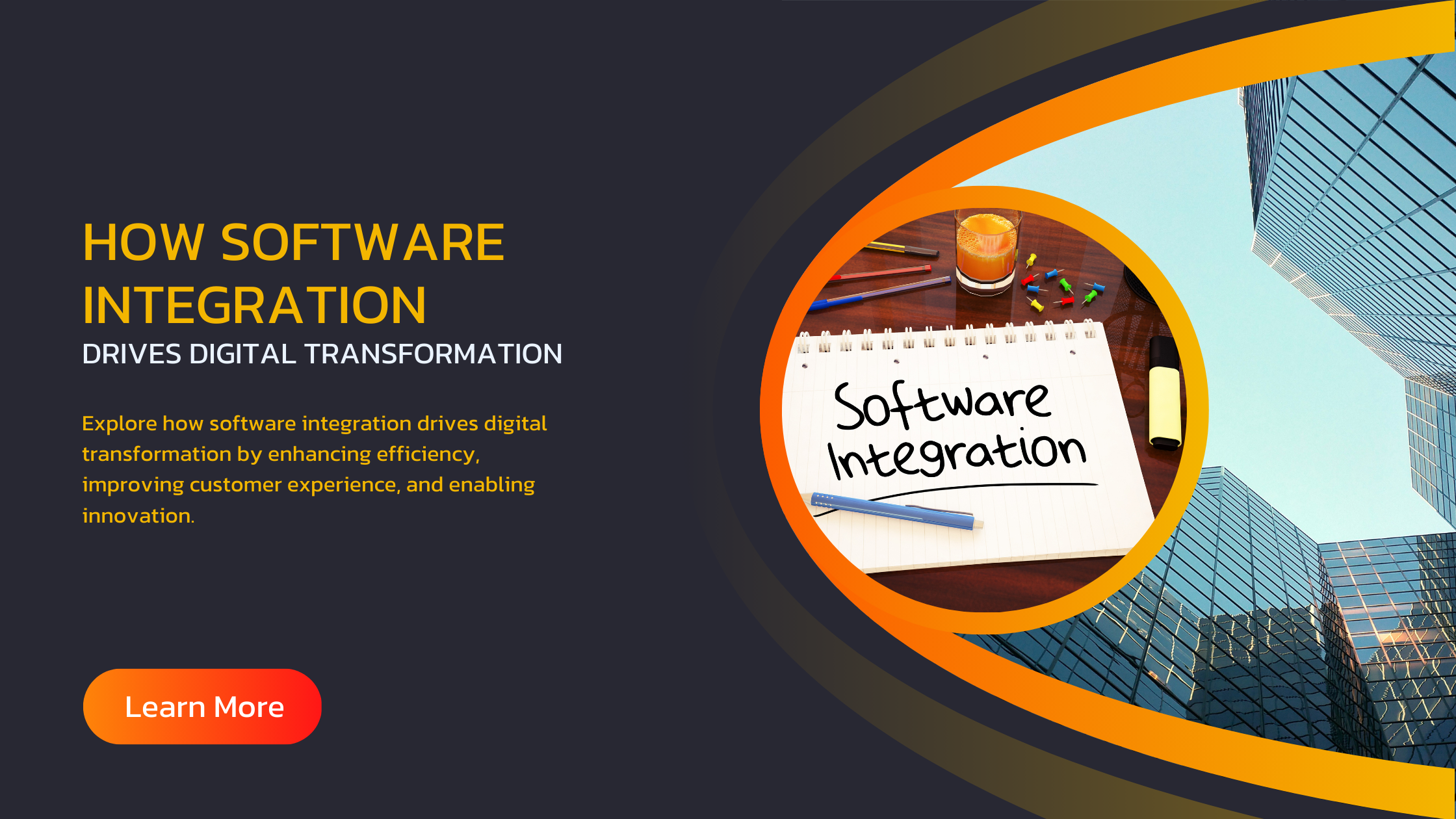
In recent years, the healthcare industry has been undergoing a significant shift towards digitalization, driven by advancements in technology and the need for more efficient, patient-centered care. Digital transformation in healthcare has become a crucial topic for healthcare providers, policymakers, and patients alike. This comprehensive blog post will explore the key strategies and insights related to digital transformation in healthcare, discussing its impact, challenges, and prospects.
Understanding Digital Transformation in Healthcare
Digital transformation in healthcare refers to the integration of digital technologies into all areas of healthcare delivery and management. This process involves fundamentally changing how healthcare organizations operate and deliver value to patients. Digital transformation in healthcare encompasses a wide range of technologies and approaches, including:
1. Electronic Health Records (EHRs)
2. Telemedicine and remote patient monitoring
3. Artificial Intelligence (AI) and Machine Learning (ML)
4. Internet of Things (IoT) devices
5. Big Data analytics
6. Cloud computing
7. Blockchain technology
8. Mobile health applications
The primary goals of digital transformation in healthcare are to improve patient outcomes, enhance operational efficiency, reduce costs, and create a more personalized and accessible healthcare experience.
Key Drivers of Digital Transformation in Healthcare
Several factors are driving the push for digital transformation in healthcare:
1. Rising healthcare costs: The need to reduce expenses and improve efficiency in healthcare delivery.
2. Aging populations: An increasing demand for healthcare services due to demographic shifts.
3. Chronic disease management: The growing prevalence of chronic conditions requiring ongoing care and monitoring.
4. Consumer expectations: Patients demand more convenient, personalized, and technology-enabled healthcare experiences.
5. Regulatory pressures: Government initiatives and regulations promoting the adoption of digital health technologies.
6. Technological advancements: Rapid progress in areas such as AI, IoT, and cloud computing, enabling new healthcare applications.
7. Data-driven decision making: The growing importance of leveraging data for improved clinical and operational outcomes.
8. Competitive pressures: Healthcare organizations seeking to differentiate themselves through digital innovation.
Strategies for Successful Digital Transformation in Healthcare
To effectively implement digital transformation in healthcare, organizations should consider the following strategies:
1. Develop a Clear Vision and Strategy
Before embarking on digital transformation initiatives, healthcare organizations need to establish a clear vision and strategy aligned with their overall goals. This involves:
– Identifying key areas for improvement
– Setting specific, measurable objectives
– Prioritizing initiatives based on potential impact and feasibility
– Engaging stakeholders across the organization in the planning process
2. Foster a Culture of Innovation
Digital transformation in healthcare requires a shift in organizational culture. Healthcare leaders should:
– Encourage experimentation and risk-taking
– Promote cross-functional collaboration
– Invest in employee training and skill development
– Recognize and reward innovative thinking
3. Prioritize Data Integration and Interoperability
A crucial aspect of digital transformation in healthcare is the ability to seamlessly share and analyze data across different systems and departments. Organizations should focus on:
– Implementing standardized data formats and protocols
– Investing in interoperable healthcare IT systems
– Developing robust data governance policies
– Ensuring compliance with data privacy and security regulations
4. Embrace Cloud Computing
Cloud-based solutions offer numerous benefits for healthcare organizations, including:
– Improved scalability and flexibility
– Enhanced data accessibility and sharing
– Reduced IT infrastructure costs
– Easier implementation of new technologies
5. Leverage Artificial Intelligence and Machine Learning
AI and ML technologies have the potential to revolutionize various aspects of healthcare, including:
– Clinical decision support
– Predictive analytics for patient outcomes
– Medical image analysis
– Administrative task automation
6. Implement Telemedicine and Remote Patient Monitoring
Telemedicine and remote monitoring technologies can significantly improve access to care and patient outcomes. Healthcare organizations should:
– Develop comprehensive telemedicine programs
– Invest in remote monitoring devices and platforms
– Train healthcare providers in virtual care delivery
– Address regulatory and reimbursement challenges
7. Focus on Patient Engagement and Experience
Digital transformation in healthcare should prioritize enhancing patient engagement and experience through:
– User-friendly patient portals and mobile apps
– Personalized health information and recommendations
– Self-service appointment scheduling and billing
– Virtual health assistants and chatbots
8. Ensure Cybersecurity and Data Privacy
As healthcare organizations become increasingly digital, protecting sensitive patient data is paramount. Key considerations include:
– Implementing robust cybersecurity measures
– Conducting regular security audits and risk assessments
– Training employees on data privacy best practices
– Staying compliant with regulations such as HIPAA
9. Collaborate with Digital Health Startups and Technology Partners
Partnerships with innovative startups and established technology companies can accelerate digital transformation in healthcare by:
– Accessing cutting-edge technologies and expertise
– Fostering innovation through collaboration
– Sharing development costs and risks
– Leveraging complementary strengths and capabilities
10. Measure and Monitor Progress
To ensure the success of digital transformation initiatives, healthcare organizations should:
– Establish key performance indicators (KPIs) for each initiative
– Regularly collect and analyze data on progress and outcomes
– Adjust strategies based on insights gained
– Communicate results to stakeholders and celebrate successes
Challenges in Digital Transformation in Healthcare
While the potential benefits of digital transformation in healthcare are significant, organizations face several challenges in implementation:
1. Resistance to Change
Healthcare professionals may be resistant to adopting new technologies and workflows. Overcoming this resistance requires:
– Clear communication of the benefits of digital transformation
– Involving clinicians and staff in the planning and implementation process
– Providing comprehensive training and support
– Addressing concerns about job security and role changes
2. Legacy System Integration
Many healthcare organizations still rely on outdated legacy systems, which can be difficult to integrate with newer digital technologies. Strategies to address this challenge include:
– Gradual migration to modern, interoperable systems
– Implementing middleware solutions for data integration
– Developing clear data migration and system retirement plans
– Investing in staff training for new systems
3. Data Privacy and Security Concerns
The increased digitalization of healthcare data raises concerns about privacy and security. Healthcare organizations must:
– Implement robust cybersecurity measures
– Ensure compliance with data protection regulations
– Educate patients and staff about data privacy best practices
– Regularly assess and update security protocols
4. Regulatory Compliance
Healthcare is a highly regulated industry, and digital transformation initiatives must comply with various regulations. Organizations should:
– Stay informed about relevant regulations and their implications
– Engage legal and compliance experts in the planning process
– Implement systems and processes to ensure ongoing compliance
– Advocate for regulatory changes that support digital innovation
5. Financial Constraints
Digital transformation in healthcare often requires significant upfront investment. To address financial challenges, organizations can:
– Develop a clear business case for each initiative
– Prioritize projects with the highest potential ROI
– Explore alternative funding sources, such as grants or partnerships
– Implement cost-saving measures to free up resources for digital investments
6. Interoperability Issues
The lack of standardization across healthcare IT systems can hinder data sharing and integration. To improve interoperability, organizations should:
– Adopt industry-standard data formats and protocols
– Participate in health information exchanges
– Advocate for greater standardization in the healthcare IT industry
– Invest in integration platforms and APIs
7. Workforce Skills Gap
Many healthcare organizations lack the in-house expertise needed to implement and manage digital technologies. Strategies to address this gap include:
– Investing in employee training and development programs
– Recruiting digital health experts and data scientists
– Partnering with technology companies and consultants
– Fostering a culture of continuous learning and innovation
8. Ethical Considerations
The use of AI, big data analytics, and other digital technologies in healthcare raises ethical concerns. Organizations must:
– Develop clear ethical guidelines for the use of digital technologies
– Ensure transparency in AI-driven decision-making processes
– Address potential biases in algorithms and data sets
– Engage in ongoing dialogue with patients, clinicians, and ethicists
The Impact of Digital Transformation in Healthcare
Digital transformation is reshaping various aspects of healthcare delivery and management:
1. Patient Care and Outcomes
– Improved access to care through telemedicine and remote monitoring
– More personalized treatment plans based on data-driven insights
– Enhanced care coordination and continuity
– Earlier detection and prevention of health issues
2. Operational Efficiency
– Streamlined administrative processes through automation
– Optimized resource allocation and scheduling
– Reduced medical errors and improved patient safety
– Enhanced inventory management and supply chain efficiency
3. Cost Reduction
– Decreased hospital readmissions through better follow-up care
– Reduced unnecessary tests and procedures
– Lower administrative costs through process automation
– More efficient use of healthcare resources
4. Research and Innovation
– Accelerated drug discovery and development
– Enhanced clinical trial recruitment and management
– Improved population health management
– Advanced medical imaging and diagnostics
5. Patient Engagement and Experience
– Greater patient involvement in their health management
– Improved communication between patients and healthcare providers
– Enhanced patient satisfaction through convenience and accessibility
– Personalized health education and recommendations
6. Healthcare Workforce
– New roles and career opportunities in digital health
– Improved work-life balance for healthcare professionals through remote work options
– Enhanced collaboration and knowledge sharing among healthcare teams
– Reduced administrative burden, allowing more focus on patient care
Future Trends in Digital Transformation in Healthcare
As technology continues to evolve, several trends are shaping the future of digital transformation in healthcare:
1. 5G and Edge Computing
The rollout of 5G networks and edge computing will enable:
– Real-time remote surgeries and consultations
– Enhanced IoT device connectivity for remote patient monitoring
– Improved data processing and analysis at the point of care
– More efficient telemedicine and virtual reality applications
2. Quantum Computing
Quantum computing has the potential to revolutionize healthcare by:
– Accelerating drug discovery and development
– Enhancing complex data analysis for personalized medicine
– Optimizing resource allocation and scheduling in healthcare systems
– Improving encryption methods for enhanced data security
3. Advanced Robotics and Automation
The integration of robotics and automation in healthcare will lead to:
– More precise and less invasive surgical procedures
– Automated medication dispensing and inventory management
– Enhanced physical therapy and rehabilitation through robotic assistants
– Improved patient care in infectious disease scenarios
4. Voice and Natural Language Processing
Advancements in voice recognition and natural language processing will enable:
– More intuitive and efficient EHR documentation
– Voice-activated virtual health assistants for patients and clinicians
– Improved accessibility for patients with disabilities
– Enhanced analysis of unstructured clinical data
5. Augmented and Virtual Reality
AR and VR technologies will transform healthcare through:
– Enhanced medical training and simulation
– Improved surgical planning and visualization
– Virtual therapy for mental health conditions
– Immersive patient education experiences
6. Blockchain in Healthcare
Blockchain technology has the potential to:
– Enhance the security and privacy of health data
– Improve the interoperability of healthcare systems
– Streamline claims processing and billing
– Enable more efficient clinical trial management
7. Precision Medicine
Advancements in genomics and data analytics will drive the growth of precision medicine, leading to:
– More personalized treatment plans based on genetic profiles
– Improved disease prevention strategies
– Enhanced drug efficacy and reduced adverse reactions
– Better management of rare and complex diseases
8. Digital Therapeutics
The rise of digital therapeutics will:
– Provide evidence-based therapeutic interventions through software
– Enhance the management of chronic conditions
– Offer new treatment options for mental health disorders
– Complement or replace traditional pharmaceutical interventions
Conclusion
Digital transformation in healthcare is no longer a luxury but a necessity for organizations seeking to improve patient outcomes, enhance operational efficiency, and remain competitive in an increasingly digital world. By embracing digital technologies and implementing strategic initiatives, healthcare organizations can revolutionize the way they deliver care and manage their operations.
However, successful digital transformation in healthcare requires a holistic approach that addresses not only technological challenges but also organizational, cultural, and regulatory factors. Healthcare leaders must develop clear strategies, foster a culture of innovation, prioritize data integration and security, and continuously adapt to evolving technologies and patient needs.
As we look to the future, digital transformation in healthcare will continue to evolve, driven by emerging technologies and changing patient expectations. Organizations that can effectively navigate this digital landscape will be well-positioned to deliver high-quality, personalized care while optimizing their operations and driving innovation in the healthcare industry.
To learn more about how your healthcare organization can successfully implement digital transformation initiatives, visit Upcore Technologies, a leading digital transformation consulting agency. Our team of experts can help you develop and execute a comprehensive digital strategy tailored to your organization’s unique needs and goals, ensuring that you stay at the forefront of healthcare innovation.








